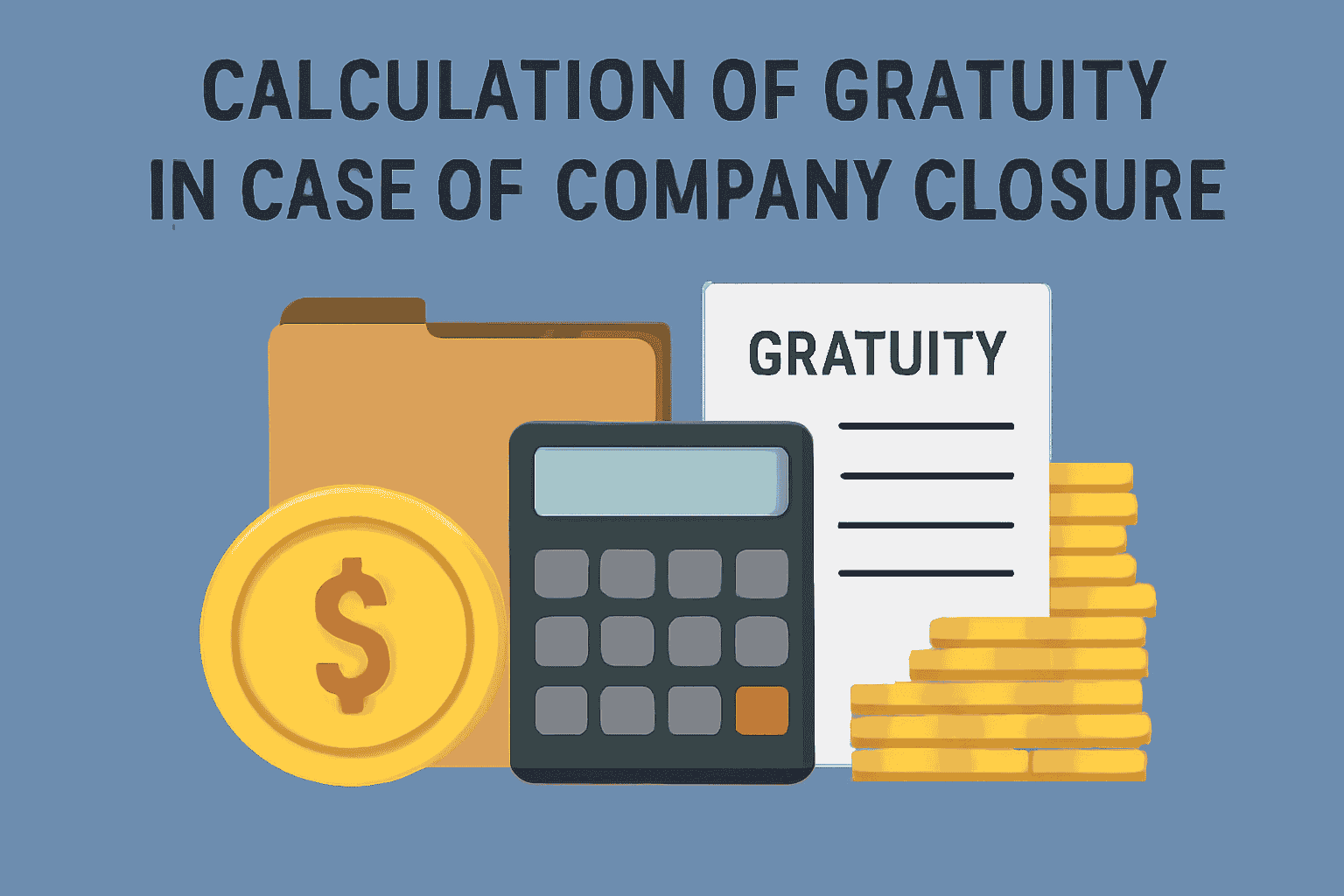Gratuity is a statutory benefit paid to employees who have worked with a company for a specified period. It serves as a token of appreciation for their service, especially for employees who have worked in an organization for five years or more. However, one key question often arises: How is gratuity calculated in case of company closure?
In this post, we’ll explore the process, rules, and important considerations related to calculating gratuity when a company shuts down. Let’s break it down systematically to help you understand the procedure.
What is Gratuity?
Gratuity is a one-time payment made by an employer to an employee as a reward for their long-term service to the organization. According to the Payment of Gratuity Act, 1972, the benefit is applicable to employees working in establishments with 10 or more employees.
Gratuity Calculation Formula:
Before diving into the specifics of calculating gratuity during company closure, let’s quickly review the basic formula:
- Last Drawn Salary: This refers to the basic salary plus any dearness allowance (if applicable).
- Number of Years Worked: Gratuity is calculated based on completed years of service. Partial years are rounded up to the next full year.
- 15: The number 15 in the formula refers to the 15 days of salary for each year of service.
How is Gratuity Calculated in Case of Company Closure?
When a company shuts down, it must pay the gratuity to all its eligible employees. The process is similar to the regular calculation of gratuity, but with a few key considerations:
1. Eligibility for Gratuity in Case of Closure
Employees who have completed 5 years or more of continuous service in the company are eligible for gratuity, even in the case of company closure. If the closure happens before the 5-year mark, the employee may not be entitled to gratuity.
2. Closure of Company and Gratuity Payout
In the event of a company closure, whether voluntary or due to financial instability, the employer is legally bound to pay gratuity to its employees. The payment must be made within 30 days of the company’s closure.
3. Calculation of Gratuity
The calculation method remains the same as the general formula mentioned above. However, certain adjustments might be needed:
- Severance or Settlement: If the company decides to settle or offer severance packages, these can be adjusted against the gratuity amount.
- Notice Period: If an employee is asked to serve a notice period, the gratuity is calculated based on the last drawn salary at the time of the company’s closure.
4. Payment of Gratuity in Case of Insolvency
In cases of company insolvency or bankruptcy, employees may face challenges in receiving their gratuity. However, they can file claims with the Labour Commissioner or the Employees’ Provident Fund (EPF) Organization if the employer fails to pay. In some instances, the government may step in to facilitate the payment.
5. Pro-rata Gratuity in Case of Short Service
If the employee has worked for less than 5 years, they may not be eligible for gratuity, unless the company closure happens before the completion of the 5-year period. In some cases, companies may offer pro-rata gratuity, which is a partial amount based on the duration worked.
Key Points to Remember:
- Gratuity is due upon company closure: Employees are entitled to gratuity if they have worked for 5 years or more.
- Calculation stays the same: The formula used for calculating gratuity remains unchanged in the case of closure.
- Gratuity is a right: Employees can claim gratuity even if the company is closing down due to financial reasons or insolvency.
- Claiming gratuity: In case the employer fails to pay gratuity, employees can approach the Labour Department or Employees’ Provident Fund Organization.
Conclusion
The closure of a company can be a challenging situation for employees, especially when it comes to receiving their dues like gratuity. However, understanding the rules and regulations regarding gratuity calculation can help employees ensure they receive their rightful amount.
Always remember, even in case of company closure, if you’ve completed 5 or more years of service, you are entitled to gratuity under Indian law. If you face difficulties in receiving the payment, you have legal avenues to pursue, including approaching the appropriate government bodies.
To make your gratuity calculation easier, use our Gratuity Calculator to determine the amount you are eligible for. It’s a fast, reliable, and accurate tool to calculate your dues!

